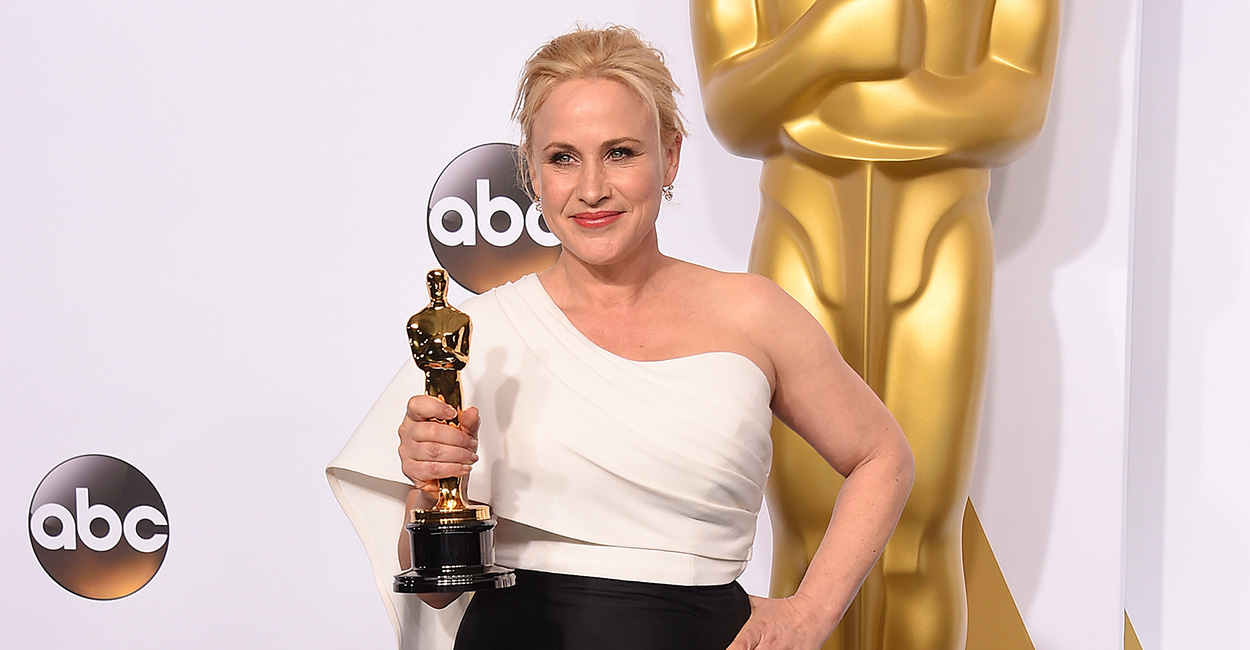
Actress Patricia Arquette (Photo: ACE Pictures/Newscom)
In a harried Oscar acceptance speech which culminated in a hackneyed call for wage equality, actress Patricia Arquette blamed the Founders for the so-called gender pay gap.“It’s inexcusable that we go around the world and we talk about equal rights for women in other countries when we don’t have equal rights for women in America,” Arquette, who won an Oscar for Best Supporting Actress, said. “And we don’t because when they wrote the Constitution, they didn’t intend it for women.”
Like many Americans, actress Patricia Arquette doesn’t understand the Constitution (she also doesn’t understand basic economics as The Federalist’s Mollie Hemingway pointed out).If the Framers didn’t intend the Constitution for women, they sure did a fine job of concealing their intention. Nowhere in the original Constitution are citizens classified according to sex. As Tiffany Jones Miller explains in the “Heritage Guide to The Constitution” essay on the 19th Amendment:
"Contrary to popular belief, the United States Constitution of 1787 is a gender-neutral document. Throughout the original text, the Framers refer to “persons”—as opposed to “male persons”—and use the pronoun “he” only in the generic sense. The word “male” did not even appear in the Constitution until the Fourteenth Amendment was ratified in 1868."
While we’re at it, it’s worth pointing out that the Declaration of Independence also doesn’t take into account sex in proclaiming that we are all created equal and endowed by our Creator with inalienable rights. The Declaration speaks of “all men” and not “all human beings” because the former is a more rhetorically powerful way to describe mankind.
Neither one of our founding documents classifies people according to sex—or according to race or religion for that matter. Therefore, contrary to what many civics textbooks incorrectly teach, the original Constitution did not restrict the right to vote to white, property-owning males aged 21 or older.
The Constitution defers to the states on voting eligibility in federal elections. As is plainly written in Article I, Section 2: “the Electors in each State shall have the Qualifications requisite for Electors of the most numerous Branch of the State Legislature.”
As a result, voting eligibility varied by state. Certain states denied blacks the right to vote—but a majority did not. And—here comes the whopper—women were voting in New Jersey at the time of the Founding! For the first time in recorded history, women voted alongside men in elections. And it happened right here in America—the first country in the world dedicated to the proposition that all men and women are created equal.
The 19th Amendment, therefore, did not give women the right to vote. It guaranteed women the right to vote. By the time it was ratified in 1920, more than three-fourths of the states already allowed women to vote in some or all elections. Ultimately, the seeds of women’s suffrage were sown in the Declaration of Independence’s dedication to equality.
Whatever the state of remuneration in the workplace may be today, Patricia Arquette and others should leave the Founders out of it.
[bold, italics, and colored emphasis mine]
David Azerrad devotes his time and research to increasing public understanding of America’s founding principles. As director of The Heritage Foundation’s B. Kenneth Simon Center for Principles and Politics, he teaches the tenets of the American political tradition to policymakers, political leaders and the public at large, while connecting our founding principles to the thorny questions of the day. Read his research.






No comments:
Post a Comment